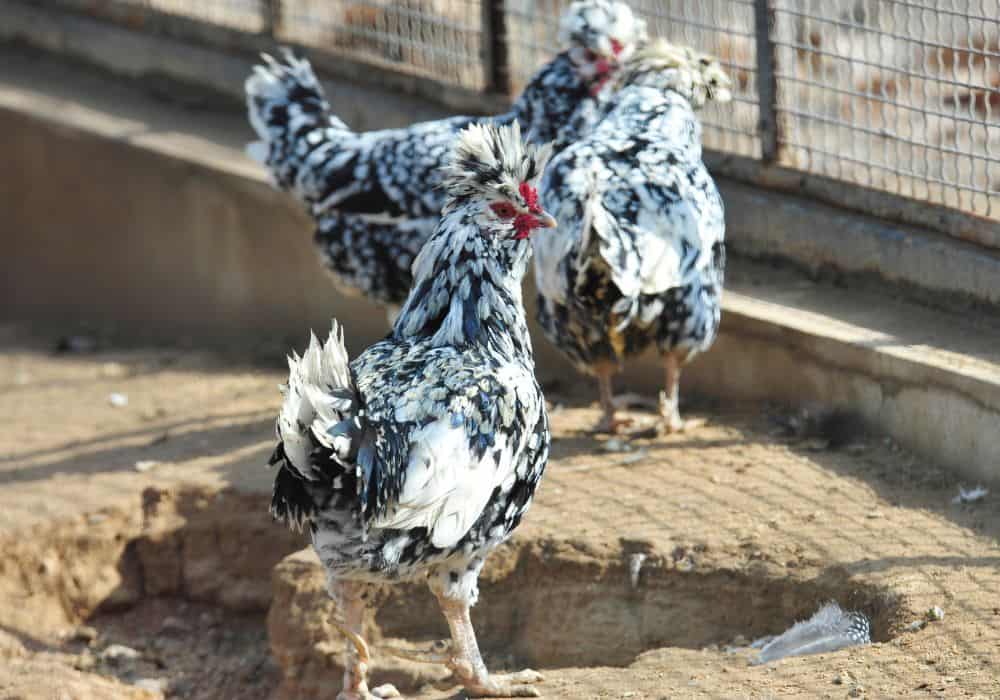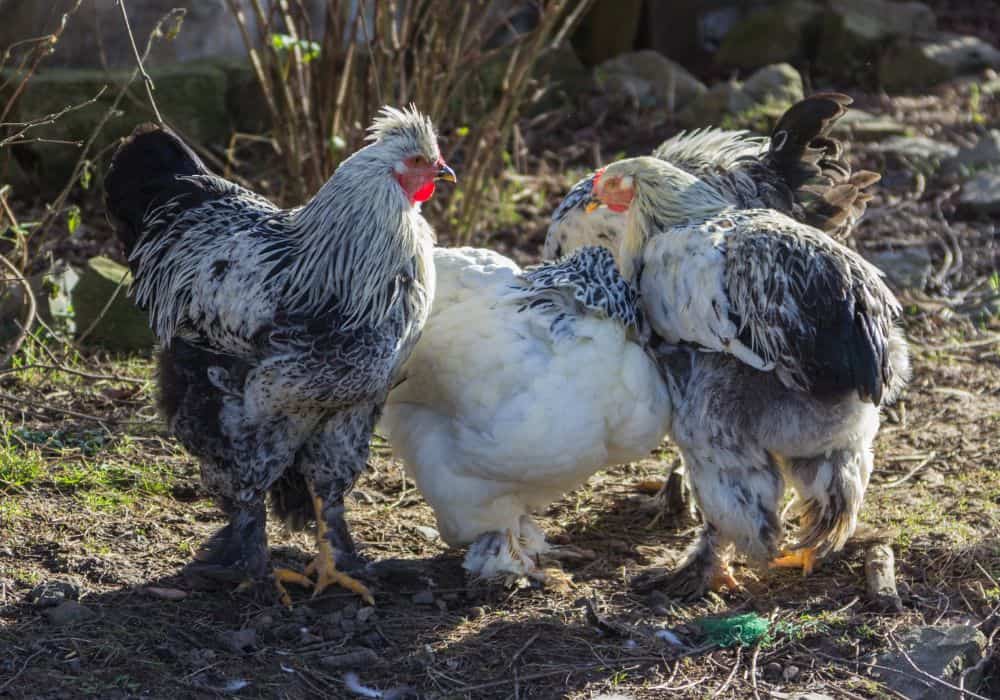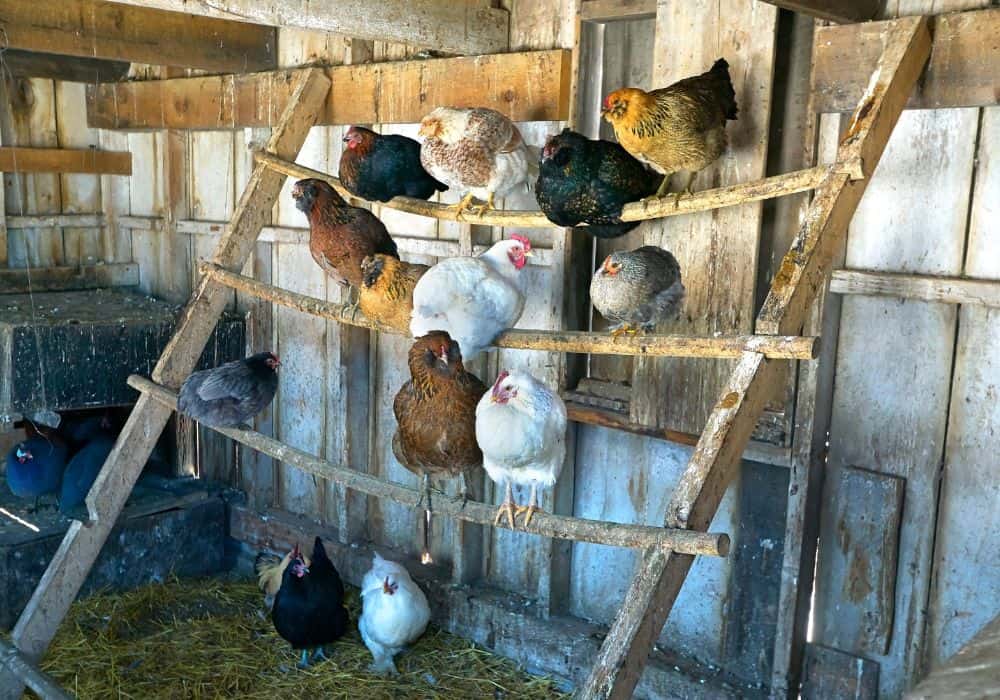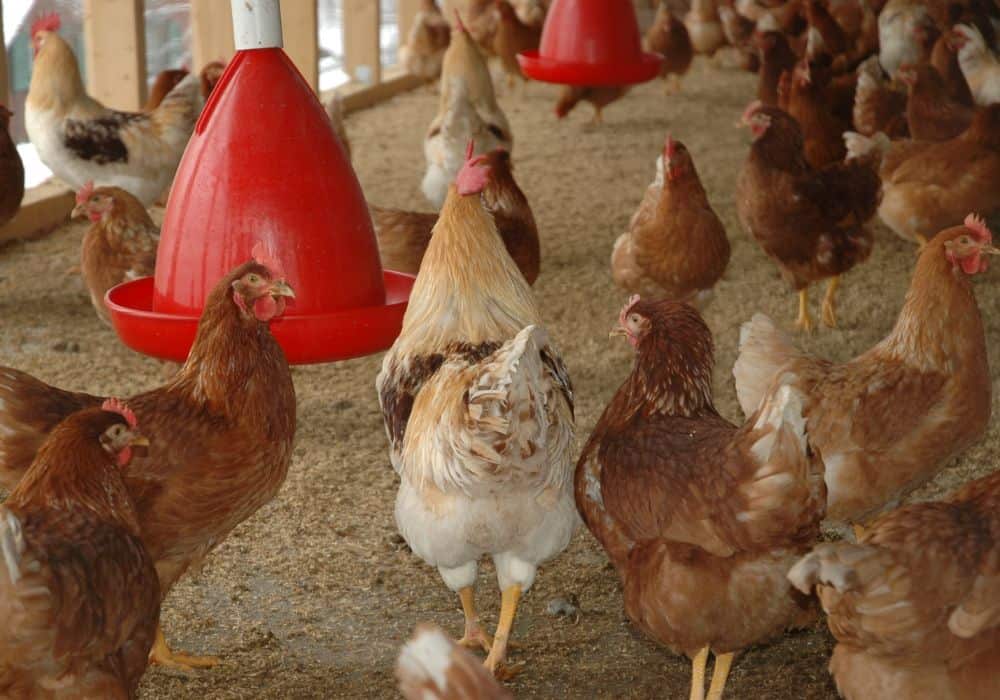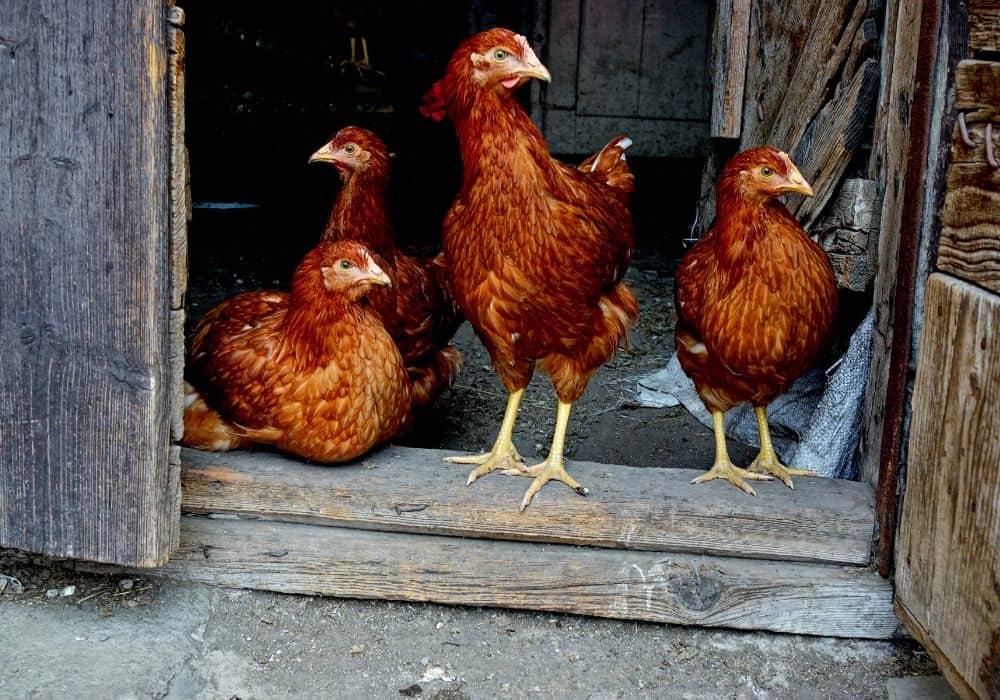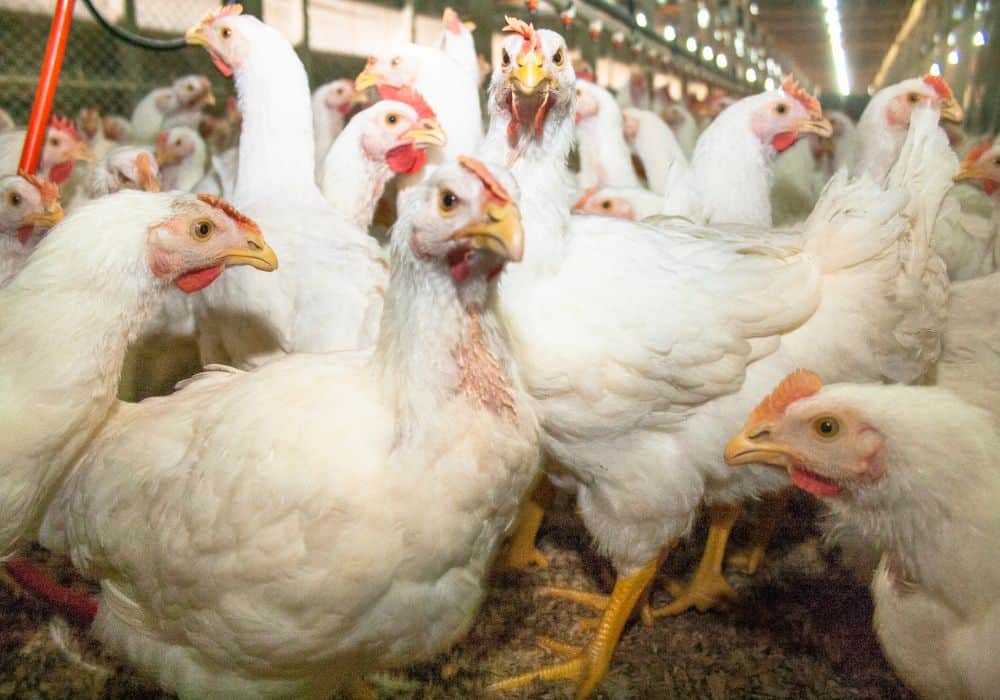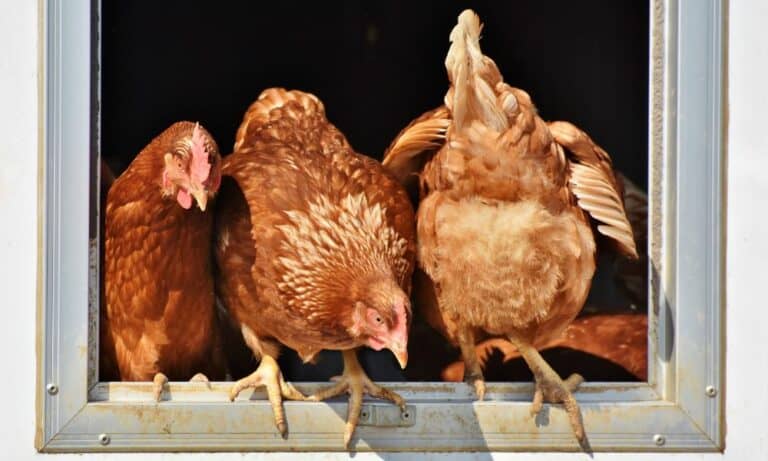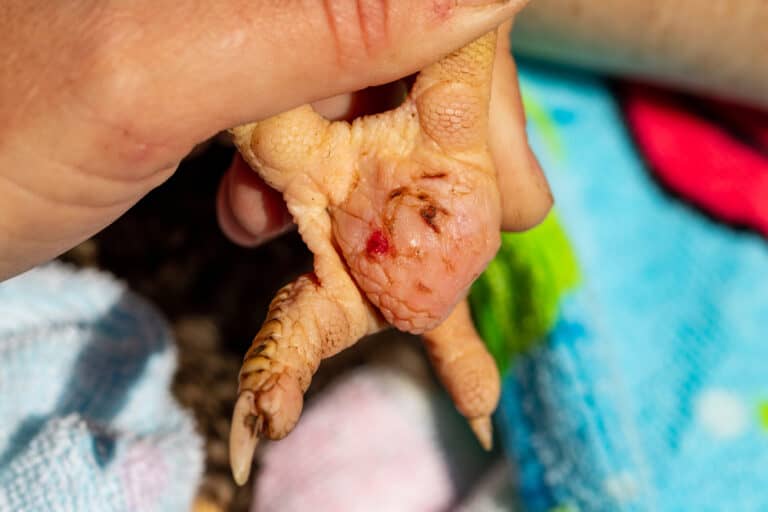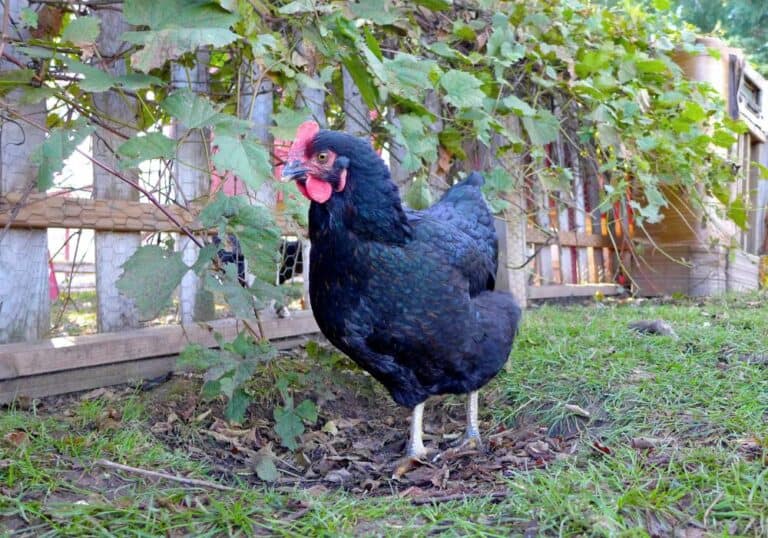Raising chickens can be a wonderful experience for many reasons. However, when disease strikes, your dream of raising a productive and healthy flock can turn into a nightmare. Due to this, it’s important to know what the deadliest diseases are, and how to treat them.
Thankfully, that’s where we can help. We’ll check out the five deadliest chicken diseases and give you all the info you need. Let’s get started!
Overview of Chicken Diseases
Your chickens can get sick due to a variety of viral, bacterial, and parasitic pathogens. But unlike other pets, such as cats and dogs, chickens are categorized as food animals. Due to this, only a very limited number of treatments are available as there are strict rules for using antibiotics for poultry.
Due to this, treating your flock for deadly chicken diseases can be quite a challenge. So, the goal is to prevent such issues from reaching your chickens in the first place. To do this, you will need to follow a few basic preventative measures before and after you get your new flock.
But what are the deadly chicken diseases you should look out for? Are there any vaccinations available and how are these transmitted? Here we will discuss the most deadly chicken diseases around and all the essential facts you need to know.
5 Most Deadly Chicken Diseases
1. Marek’s Disease
- Vaccination Available?: Yes
- Best Treatment: CVI988/Rispens
- Mortality Rate: 80%
- Transmitted By: Feathers & Dander
This disease is also called MD or fowl paralysis and is a disease common in chickens. It’s caused by the herpes virus, and it affects both pets and commercial chickens.
Marek’s may result in great production loss or worse, death. The disease leads to changes in a lot of the chicken’s nerves which can cause tumors in their main internal organs.
This disease is highly contagious as it affects your flock, mainly targeting the nervous system, causing several serious symptoms. These include tumors, paralysis, and immuno-suppression.
Sadly, there’s no cure for this chicken disease, and once your flock gets infected, the virus will stay in their body for life. This is why your focus should mainly be on preventing the disease and managing it instead of treatment.
Preventive Measures
Since there’s no treatment for the disease, you’ll need to remove all the infected from the flock and unfortunately, destroy them. Of course, do this as humanely as possible. Other chickens are likely infected by this stage, so you’ll need to closely observe each member of the flock.
Here are some of the best ways to prevent MD in your chickens:
- Vaccination – This is the most effective method against MD, and fortunately, the commercially-available vaccines can be given to your baby chicks. Giving it to them at a young age will protect your flock against the disease.
Currently, the most effective commercial vaccine is the CVI988/Rispens. Technically, it is an attenuated MD virus strain usually combined with HVT at vaccination. It is given to your chickens at hatch or in the ovo to embryos, but make sure it’s on the 18th day of incubation.
- Genetic Selection – A few chicken breeds were selectively bred to increase their resistance against MD. That means, opting for the breeds that have greater resistance to the disease can lessen the impact of the disease within your flock.
It’s best to consult an experienced veterinarian who knows how to handle chicken health to create a plan for managing MD in your flock. The vet can provide assistance on biosecurity measures, vaccination schedules, and general chicken health management practices.
- Biosecurity – Keeping a strict biosecurity measure is important to prevent the spread of MD. To observe this, you will need to practice limiting access to the flock. It is also necessary to maintain cleanliness and sanitation, as well as prevent contact with other chickens that could possibly carry the virus.
2. Coccidiosis
- Vaccination Available?: Yes
- Best Treatment: Amprolium
- Mortality Rate: Up to 50% (but it depends on the strain)
- Transmitted By: Contaminated feces
This is a common and highly widespread disease in chickens that is caused by different types of species under the Eimeria protozoa category. It affects the intestines of your chickens, leading to severe damage to their digestive system, which then leads to poor growth and higher mortality rates.
Here are some of the symptoms of Coccidiosis you need to watch out for:
- Diarrhea usually with blood
- Reduced feed consumption
- Weight loss
- Poor feather quality
- Dehydration
Preventive Measures
- Purchase Vaccinated Chickens – An easy way to manage this disease is by purchasing vaccinated chickens. The vaccines are administered on the day of the hatch, and when they develop immunity, the chickens will be able to resist the strains of Coccidia.
- Use Natural Alternatives – The use of natural products can help decrease problems caused by Coccidiosis, and these include fungal extracts, probiotics, and plant extracts. However, it’s good to note that diet supplements each have their own effects, including immune stimulation, antioxidant activity, anti-inflammatory, and cytoplasmic damage.
- Reduce Exposure to Parasites – Decreasing the exposure of chickens to parasites can be achieved if you have excellent management practices. The main thing you can do is make sure you don’t have too many chickens crammed into a small space.
Added to this, it’s also important to clean the coop often and provide them with fresh bedding. The two things will naturally make your coop a difficult place for parasites to thrive.
3. Avian Influenza (Bird Flu)
- Vaccination Available?: Yes
- Best Treatment: HVT-H5
- Mortality Rate: 60%
- Transmitted By: Contact with infected birds
This is more commonly known as Bird Flu, a viral disease that mainly affects chickens and other birds, but it also affects us humans. There are several strains of the Bird Flu and some are highly pathogenic, causing severe illness in the flock.
This disease spreads fast by bird-to-bird and direct contact. Moreover, it can also spread in an indirect manner, like when birds get into contact with any contaminated surface/material. Potential sources for introducing the disease to domestic birds include migratory waterfowl, movement of poultry, and smuggled poultry/poultry products.
This virus can be moved on egg flats, manure, crates, or other farming accessories and materials. You should also keep watch because the virus can also be spread by people who inadvertently picked up the virus on their hands, clothing, or shoes.
Preventive Measures
- Avoid Exposure – Your chickens could be at risk of catching Bird Flu when they access the outdoors because infected birds can spread it by direct contact. Or, they can simply contaminate the environment of your chickens. The best way to prevent the disease is to avoid these sources of exposure as much as possible.
- Proper Biosecurity – Anyone working with poultry needs to know the proper steps to keep Bird Flu away from entering the premises. Having proper biosecurity at all times is the best way to safeguard your flock.
It doesn’t matter if you’re already familiar with biosecurity. It’s always better to make double-take the procedures and update yourself with any new steps.
- Limit Those Visiting the Area – Limiting traffic into your property will help lessen the chances of spreading the Bird Flu. Prevent visitors from coming into contact with your chickens, and avoid visiting other poultry farms to prevent the spread. If you really need to visit one, make sure to wash your hands thoroughly and scrub your boots before accessing the chicken area.
4. virulent Newcastle Disease (vND)
- Vaccination Available?: No
- Best Treatment: Depopulation
- Mortality Rate: 80 to 100%
- Transmitted By: Direct contact with bodily fluids from sick birds
This disease which is also referred to as vND, was previously called Exotic Newcastle Disease. However, it’s most commonly referred to as just Newcastle Disease.
It is a contagious and fatal disease that affects the chicken’s nervous, respiratory, and digestive systems. Because of how virulent the disease is, chickens and other birds die without displaying any clinical signs that you can keep an eye on.
Since vND has no treatment, and because it’s highly infectious, it’s best to understand how the virus spreads to control its impact. Specifically, it can be spread via excretions from infected chickens and even feces and aerosols.
Consequently, this virus can be linked to contaminated water, feed, footwear, clothing, equipment, tools, and the environment.
Preventive Measures
Ensure Good Biosecurity – Biosecurity is one of the best ways to keep your chickens healthy. That’s because they can get sick or die from the exposure of unseen viruses, parasites, or bacteria. In just a single day, these germs can spread and infect every chicken in the flock or within your premises.
Here are a few ways to safeguard your chickens from the disease:
- Like always, lessen the traffic within the premises to avoid spreading the vNR
- Always make sure to disinfect shoes, hands, clothes, crates, egg trays, tires, and vehicles
- Clean up before entering your chicken area
- Avoid visiting other poultry farms
- If your chickens were out, isolate them for 30 days before returning them to the flock
5. Mycoplasma
- Vaccination Available?: Yes
- Best Treatment: Erythromycin, Tylosin, Oxytetracycline, Doxycycline
- Mortality Rate: 10%
- Transmitted By: Through the eggs to the chicks or feathers and droppings
This is one of the deadliest chicken diseases and among the most challenging ones too. This is especially crucial for those who have breeding flocks. The only way to get rid of the disease is by culling or testing and culling the breeding hens.
Generally, infections from this disease lead to significant chronic and acute respiratory disease and secondary issues. The latter includes infected and swollen joints in the hock/foot pad, weakness, skeletal deformities, poor egg laying, and embryo mortalities.
These infections usually present symptoms in chickens like coughing nasal/ocular discharge, stunt of growth, and general symptoms (loss of appetite, fatigue, etc). There are times when chickens might even start releasing a foul smell from their head.
Preventive Measures
- Avoid Spreading Mycoplasma in Your Chicken Area – As a responsible chicken owner or parent, make sure you don’t accidentally bring this disease into your area. To prevent this from happening, here are a few quick tips to follow:
- Make sure to have a set of clothes to wear only when working with your chickens. If not, use disposable coveralls, which you can purchase from hardware stores.
- Use a pair of boots that are only for the area where your chickens are. You always need to use a footbath (bucket/shallow pan) together with a disinfectant and scrubber. These are essential for cleaning your boots before and after working in your chicken area.
- Separate the Chickens – Remember, buying chickens will always carry the dangers of acquiring a bird infected with Mycoplasma. Most sellers may not be aware that the chickens have been infected, and remember, the disease doesn’t show any signs for over three weeks. Sometimes, it doesn’t even show any symptoms at all.
What you can do is protect your chickens when you bring home a new one. Separate the new member of the flock and observe it for 30 days. When setting up the new chicken, you need to completely separate its housing area without any contact with other chickens around. Also, remember to use other clothing, tools, and shoes with the new birds.
Another thing to note is making visits. Always visit the new chickens last to avoid spreading the virus. Never ever work with your new birds first, then visit your flock after. If the new bird is infected, visiting them would only spread the virus to your coop, and that would infect everyone else.
Conclusion
As a responsible owner of chickens, knowing the deadliest chicken diseases out there is essential for the health of your flock. By getting familiar with the diseases’ symptoms, treatment, and preventive measures, you can safeguard your chickens and lessen the impact of these problems.
Be sure to implement strict security protocols, keep your environment clean, and communicate with your vet when needed. By prioritizing the health and welfare of your flock, you can guarantee thriving, healthy, and disease-free chickens.

